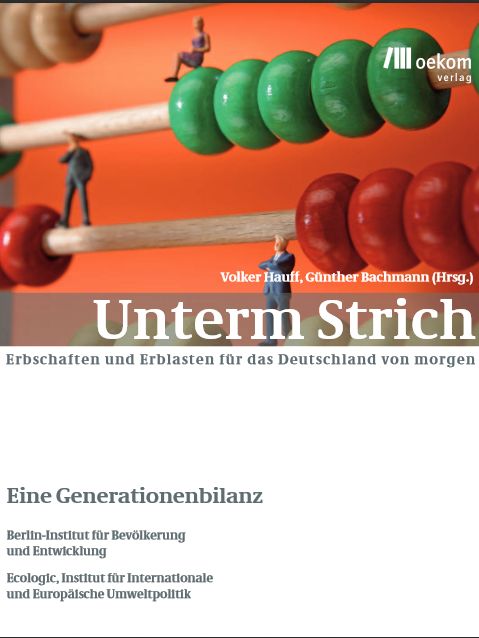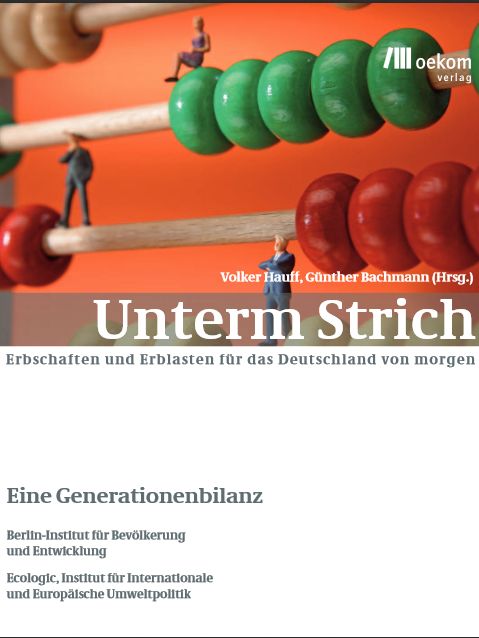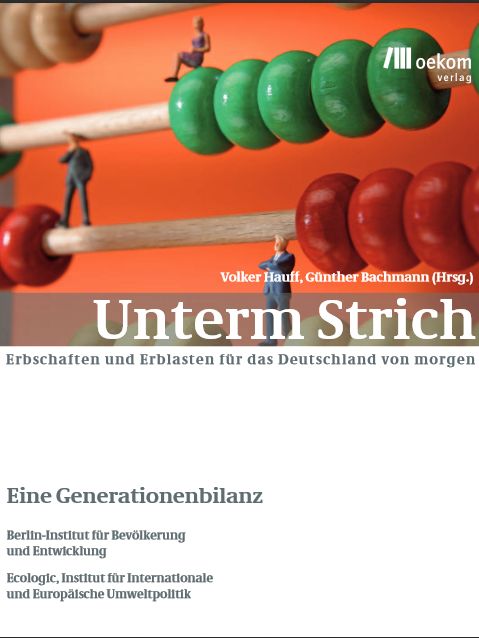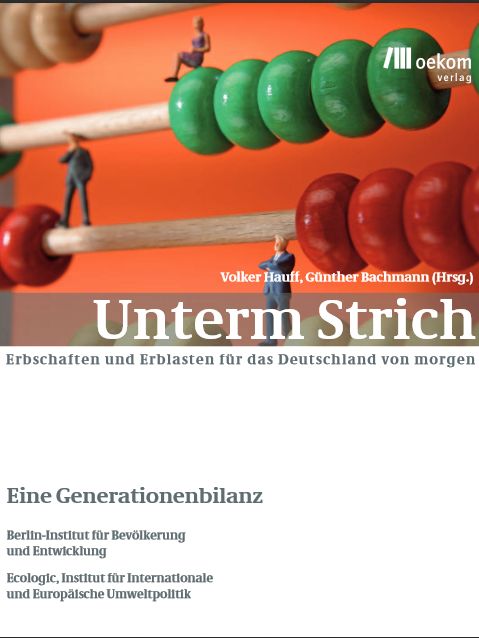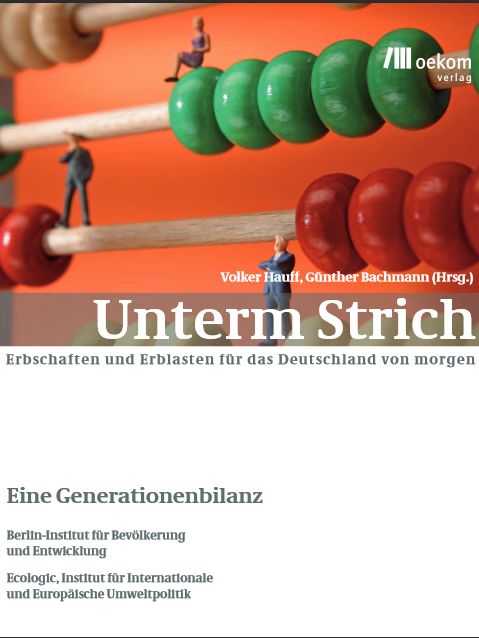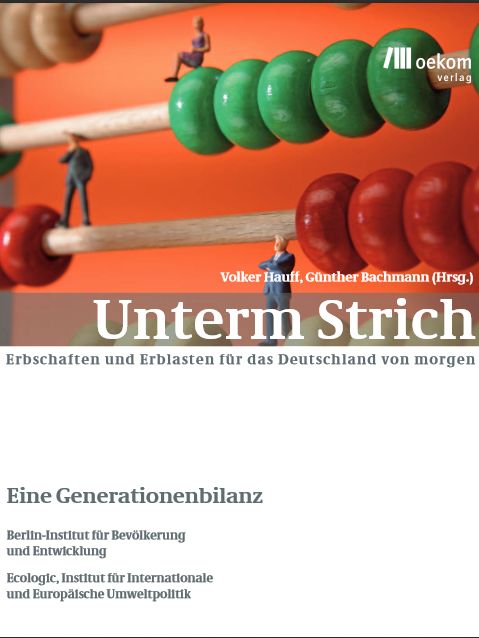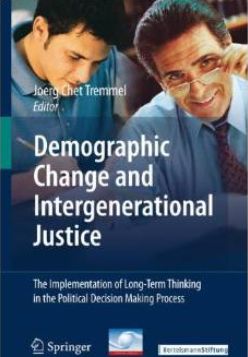
Demographic Change and Sustainability
A Generational Balance
- Publication
- Citation
Kraemer, R. Andreas; Daniel Blobel; Anneke von Raggamby and Doris Knoblauch 2008: "Demographic Change and Sustainability: A Generational Balance", in: Joerg Chet Tremmel (ed.): Demographic Change and Intergenerational Justice- the Implementation of Long-Term Thinking in the Political Decision Making Process. Heidelberg: Springer-Verlag, 99-125.
Germany's population is shrinking. While a growing population has long been understood as a threat to the environment, a shrinking population does not automatically improve the environmental situation. But what are the environmental sustainability implications of demographic trends in Germany? In their publication "Demographic Change and Sustainability: A Generational Balance", R. Andreas Kraemer, Daniel Blobel, Anneke von Raggamby and Doris Knoblauch develop approaches for a generational balance in selected areas, namely natural resource use (energy supply, settlement and transport) and nature conservation.
Based on the concept of "generational balance", which is understood in a qualitative way and thereby encompasses other aspects in addition to the financial dimension, the article makes concrete suggestions as how to limit natural resource use and preserve nature in the context of demographic change. The authors show that a decreasing population is not a solution to such environmental implications as settlement density and traffic. On the contrary, those areas that are expected to be strongly affected by demographic change will challenge the government’s ability to provide public services and utilities. In order to avoid the consequence of fewer people paying more for the same service, effective solutions become more urgent.
While a decrease in human settlements is a unique opportunity for habitats to grow back together, this article suggests that new ways of cooperation need to be explored also with regard to nature conservation. Combining governmental with private initiatives to finance and implement measures will contribute to making natural heritage a task of the whole society.
Finally, R. Andreas Kraemer et al. provide a general perspective on adaptation measures to changes Germany and Europe are faced with. As the understanding of growth and decline changes, many more scientific and technical instruments need to be considered to create the necessary political, legal and economic frameworks.
The chapter was published in "Demographic Change and Intergenerational Justice" by Joerg Chet Tremmel (Editor) for the Foundation for the Rights of Future Generations, supported by the Bertelsmann Foundation.




